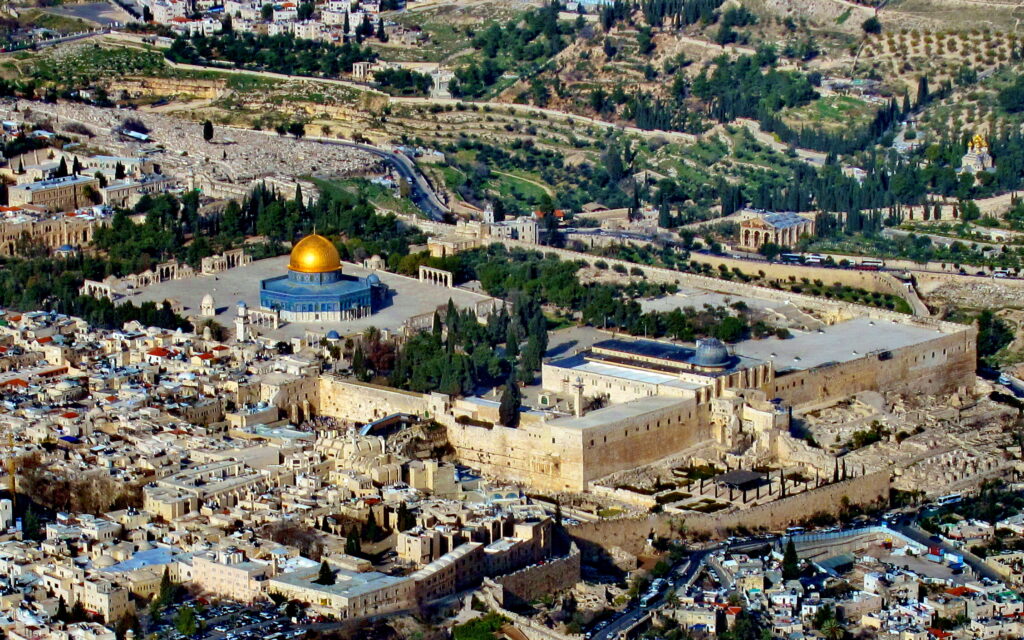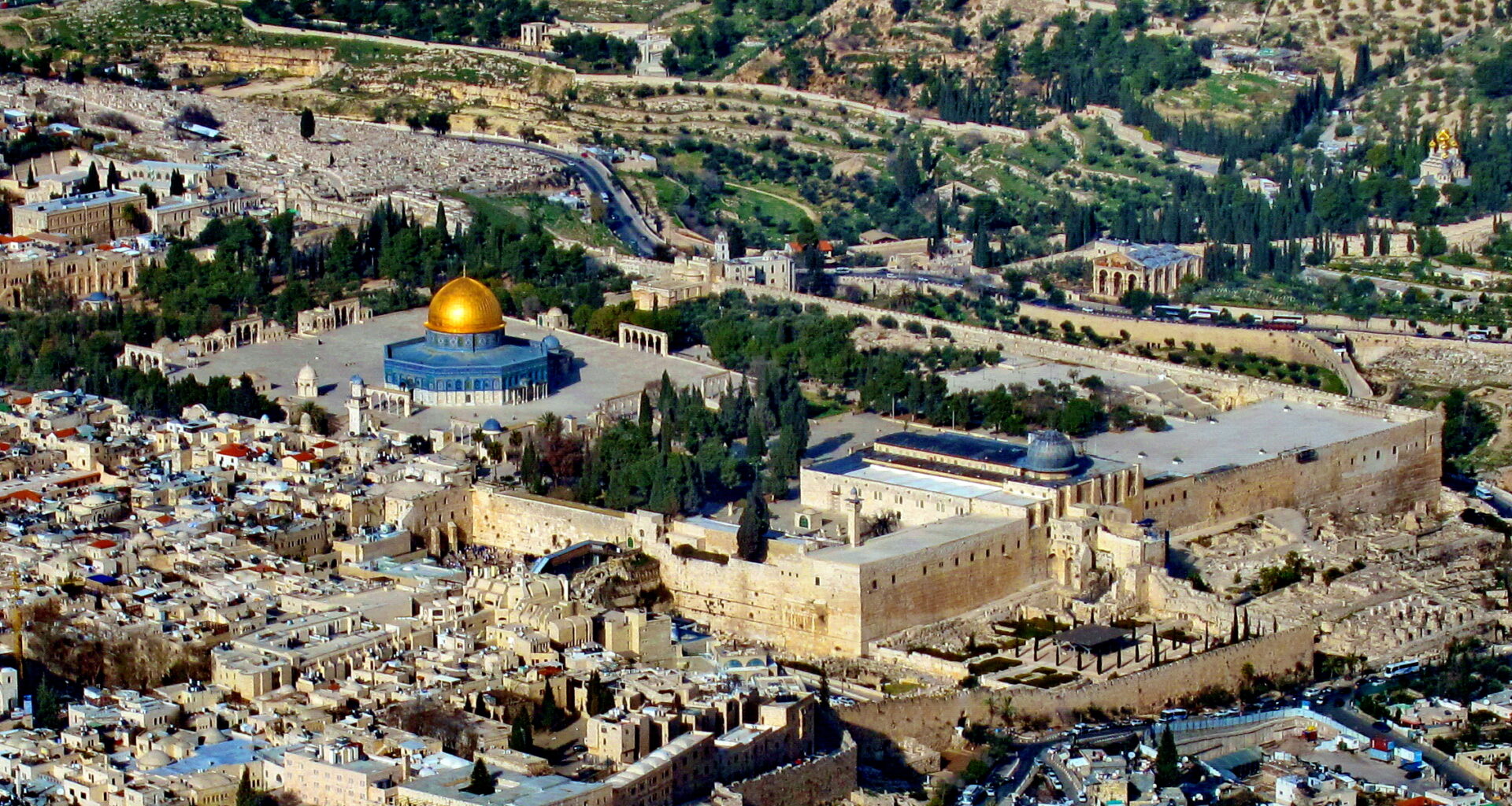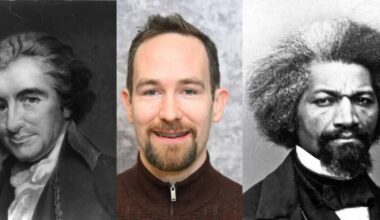
In July, President Joe Biden is likely to visit Israel and Saudi Arabia, as the two countries draw closer towards formalising the ties that have previously remained unofficial. The normalisation process that began with the Abraham Accords in 2020, when UAE, Bahrain, Sudan, and Morocco recognised the state of Israel, will be extended, through Saudi, to the broader Sunni Muslim world. And Riyadh has been laying the groundwork to formalisation.
In Turkey, despite its seven-decade old relations with Israel and recent collaborations, Recep Erdogan is still capable of using Islamist rhetoric to muster hyperbolic outrage. Saudi Arabia, however, is financially incentivising Turkey to keep this rhetoric in check. It is also offering financial support to the unflinchingly Judaeophobic Pakistan; this should extend the normalisation process from the Middle East to South Asia.
While financial and geopolitical gains were a critical factor in the 2020 Arab-Israeli normalisation, they had to be complemented by a religious rationale for the Accords – hence the nod to Abraham in their title. Saudi Arabia, for long the self-appointed leader of the Sunni half of the Arab world and custodian of Islamic sites, knows that it needs a religious narrative to sell to the Muslim world, since the latter has long been taught Jewish hatred through Islamic scriptures, which display every kind of Judaeophobia, from asking the believers ‘not to take Jews as friends’ to ordering their genocide.
Post-postcolonialism
Since World War II, three generations of global leftist intelligentsia have endowed the Arab-Israeli conflict with immutable postcolonial narratives. The Western powers, which were primarily responsible for enforcing the new world order and the injustices that came with it, created Israel as a haven for the Jews whom it had actively persecuted, or as a colonial base to continue subjugating the locals in the Middle East. At least, this is how, for the past seven decades, the ‘progressive’ argument has gone.
The idea that any land should be allocated to a religious community owing to the claims of its canonical scripture would be preposterous for anyone not believing in that scripture. However, this happened with the new state of Israel, in a part of the world which was surrounded by states ethnically cleansing the very religious community from which it was formed. The same Muslim-majority states actively persecuted other minorities using Islamic scriptures. In a world brimming with religious injustices, only one succeeded in capturing the attention of many of those on the progressive Left, who have then spent decades dismissing suggestions that religion has anything to do with it.
For proponents of this view, Israel is touted as an ‘artificial’, ‘imposed’ nation-state. Yet this is in a region where the very idea of a nation state has been artificially imposed, and where regional borders are delineated according to spheres of control exercised by competing powers. Neither Jordon, Lebanon, Syria or Iraq existed as unified states prior to the interference by the West, which had also seen the African continent sliced up like a cake. Similarly, the parallels between Pakistan and Israel are innumerable: the creation of Pakistan resulted in the largest mass migration in human history, leaving significantly more people displaced than were by the creation of Israel. The fabrication of borders to create these states is as much a consequence of Western colonialism as their Muslim-majority identity is a result of Islamic imperialism.
But just as postcolonial ideologues have artificially expunged religion out of any examination of the Middle East’s difficulties, their narrative has also sought to sanitise Islam and diminish its imperialistic tendencies. For instance, Edward Said, the prophet of Middle Eastern postcolonial studies, in his staunch defence of Islam, castigated Western media for depicting Islam negatively – at the same time as many Muslim-majority states were carrying out gory, antediluvian punishments, such as flogging for extramarital sex and stoning individuals to death for exercising freethought about Islam, in accordance with Islamic law (sharia). Said’s ‘Orientalism’ has evolved into today’s cultural-relativist ‘Islamophobia’ narrative, in which the unflinching protection of 1,400-year-old ideas, which themselves codify violence in large parts of the Muslim world, is deemed the hallmark of intellectual progressiveness.
That many on the progressive Left have chosen to view certain issues through the narrow, selectively opaque lens of postcolonialism seems to have blinded them to the fact that others can be passionately attached to the same cause, but as a result of a completely different set of ideas – ideas which also invoke an ideology that actively seeks the destruction of much of what the progressives otherwise stand for. This has created a bizarre and perilous pact between the Islamists and the Left, who together try to minimise Islam’s role in any conflict in the region, including for the maintenance of the Arab-Israeli conflict and for the refusal to create a Palestinian state.
Religious roots
In addition to Islam, it is important to stress how the two other Abrahamic religions have contributed to the conflict in the Middle East. Just as Islam, from its onset, has explicitly condemned Christian and Jews, and rejected the fundamental beliefs of its predecessors – for instance by calling Jesus a prophet and not the son of God – Christianity too was keen from an early stage to distance itself from its Judaic roots.
Biblical Judeophobia, which holds the Jews responsible for the crucifixion of Jesus, oversaw the persecution and even pogroms of Jewish populations from western Europe to Russia. Pogroms were also carried out under the Ottoman Empire. There were cheerleaders aplenty in both Christian-majority and Muslim-majority countries when the Axis powers were preparing the grounds for the Holocaust. The latter was itself spearheaded by an ethno-supremacist Nazi ideology, the genocidal antisemitism of which was complemented by religionist Judaeophobia.
Yet Zionism, the movement for the creation of a Jewish homeland in the historic land of Israel which emerged amid the escalating Jewish persecution in the 19th century, has found many of its proponents aspiring to recreate ‘land of Canaan’ that would encompass the entire territory between the Mediterranean Sea and the Jordan River. The Biblical ‘Judea and Samaria’, today called the West Bank, was captured by Israeli forces after the 1967 war. The West Bank forms a large chunk of the Palestinian territory that was earmarked by the 1947 UN Partition Plan. Yet over the past 55 years, it has been inhabited by nearly half a million Jewish settlers, a vast majority of them Orthodox Jews looking to fulfil the canonical prophecies.
Jerusalem symbolises the common roots, and shared animosity, between the three Abrahamic religions and the expansionist empires that have conquered the city, from the Romans in the first century AD to the Arabs in seventh century. Each conqueror in turn aspired to assert its dominance atop the remnants of the vanquished religions. The Temple Mount is a symbol of intra-Abrahamic antagonism and the tangible religious root of the centuries-old conflict between them.
Al-Aqsa Mosque compound, built atop the Temple Mount, signifies the third holiest site in Islam. According to Islamic tradition, it was the first qibla (direction of prayer) sanctioned by Muhammad and the site of the fable that narrates his flight to Jannah (heaven). It is the Jewish occupation of this holy land that has outraged the vast majority of the Muslim world, and constitutes its main grievance against Israel – more so than Israel’s occupation of Palestinian territory. The animosity for Jews in Islamic scriptures adds Judaeophobic fuel to the Islamist fire.
Islamic anti-Semitism
While Jewish and Christian progressives largely denounce their scriptures’ contribution to the conflict, Muslim progressives have historically toed the leftist position on Israel: even those otherwise critical of Islamist doctrines have actively disassociated Islamic anti-Semitism from the broader Muslim denunciation of the Jewish state. Many have argued that the anti-Jewish bigotry in Muslim-majority states, which sometimes spirals into conspiratorial hysteria, is in fact rooted in the creation of Israel. This is a convenient, or deliberate, rewriting of the Muslim world’s history. Horrific massacres of Jews were being carried out centuries before modern-day Israel was born – from Hebron, Safed, and Petah Tikva in modern day Israel-Palestine to Damascus, Algiers, and Basra.
As far back as 628 AD, the Battle of Khaybar saw the conquest of Muhammad’s army over Jewish tribes; according to Islamic tradition, this involved the massacre and expulsion of the Jews. The Qatar-produced Ramadan television series ‘Khaybar’ alluded to the battle using the popular Arabic chant ‘Khaybar Khaybar, ya yahud, Jaish Muhammad, sa yahud’ (Jews, remember Khaybar, the army of Muhammad is returning’). This chant is frequently heard in anti-Israeli rallies from the Middle East to Western Europe. There are many hadiths (sayings of Muhammad) that encourage killing of Jews. For instance, a quotation often cited by jihadists and radical Islamists asks Muslims to fight the Jews until the time when trees and stones tell the believers, ‘O Muslim! There’s a Jew behind me, so kill him.’ The charter of Hamas uses many verses from the Islamic scriptures to call for the extermination of Jews.
Over the past century, episodes of ethnic cleansing of Jews have been carried out across the Muslim world from the Middle East to South and East Asia. These have run in parallel with expressions of fear over Israel’s attempted elimination of Muslims in Palestine. The lack of a global Muslim push to establish a Palestinian state in West Bank and Gaza between 1948 and 1967, when the territories were under Jordanian and Egyptian occupation, also suggests that creation of another Arab-Muslim state was not as high a priority as elimination of the Jewish one.
At the end of the 1970s and in the wake of the Iranian Revolution, the siege of Mecca, and the Soviet invasion of Afghanistan, a schism between Sunnis and Shias, led by Riyadh and Tehran respectively, exploded. A newfound oil hegemony became the economic basis for a proxy jihad between Saudi Arabia and Iran. This led to the radicalisation of Muslim movements from Palestine to Kashmir; even the formerly secular nationalist strains of the movements were purged in favour of a monolithic Islamist narrative. Meanwhile, as Saudi Arabia peddled violent anti-Semitism through mosques and school curricula, it was simultaneously Israel’s ally in the US alliance that pushed anti-Soviet jihad in the 1980s. Simultaneously, Iran, the hub of Shia proxy warfare, has actively allied itself with the Sunni jihadist Hamas to maintain its leverage in the Arab world. In turn, the jihadist takeover of the broader Muslim world in recent decades has meant that instead of rallying together over humanitarian grounds, even the officially secular Indonesia and Turkey have condemned Israel in an anti-Semitic way.
An Islamic rationale for Israel
New geopolitical realities, spearheaded by shared animosity for Iran, however, have pushed the Sunni Arab states, led by Saudi Arabia, into publicly befriending the Jewish state which they have long threatened with destruction. As a result, the radically Islamised curriculum in Saudi Arabia has been revised to remove anti-Semitic texts. The highest Saudi clerics, who long called for the ‘annihilation’ of Jews, dubbing them ‘descendants of apes and pigs’, have now been increasingly asking Muslims to exhibit kindness to Jews. From TV shows based on Islamic history, to deliberations in academic conferences, there has been a swift turnaround in the Arab narrative on Jews and Israel, eventually culminating in the 2020 agreements. And since the promises of Israel’s demolition were rooted in Islam, so is the rationale for this remarkable volte-face.
In his 2020 visit to Auschwitz, Mohammed al-Issa, the head of the Muslim World League, passionately vowed ‘this must never happen again.’ He insisted that fighting hatred against Jews is a ‘religious obligation’, and maintained that the Muslim World League would keep challenging anti-Semitism till it ceased to exist. ‘Political outlooks change over time but our values, our morals should never change,’ al-Issa said. And yet that is precisely what has been happening, thanks in large part to religion.
Apologists of the anti-Semitism in Islamic scriptures have long sought to contextualise, or dismiss, explicit calls for Jewish blood in the canonical texts that Muslims around the world are taught. In its condemnation of January’s jihadist attack on a Texas synagogue, the Council of American-Islamic Relations (CAIR) rejected anti-Semitism. However, it will be unlikely to address its own Judaeophobia and support for antisemitic jihadists like Aafia Siddiqui, who inspired the attack. In the aftermath of jihadist anti-Semitic manoeuvres, Muslim groups like the CAIR point to Islamic passages that urge tolerance and brotherhood, all the while refusing to address the passages that explicitly urge violence.
For instance, Jews are among the Ahl-al-Kitaab(‘People of the Book’) that the Quran refers to 31 times. According to Islamic tradition and jurisprudence, the ‘People of the Book’ were entitled to religious recognition under Islamic sharia, through being given the inferior status of dhimmi (‘protected persons’), which required them to pay jizya (tax) in return for protection. Islamic sharia also allows Muslim men to marry Christian and Jewish women, although not the other way round.
Today, a blend of theological guarantees for the Ahl-al-Kitaab and emphasis on the holiness of Al-Aqsa Mosque are the basis of the Islamic rationale used to justify the Muslim world’s normalisation of relations with Israel. Many even quote parts of the Quran to argue that Islamic scriptures in fact affirm that the land of Israel belongs to the Jews. The ostensible Islamic justification for Israel has been pushed by Saudi Arabia as it draws closer to normalising relations with it. A Saudi-led Arab influence over Al-Aqsa would further bolster Islamic tourism – which has also been spearheaded by Riyadh, as it increasingly looks to find substitutes for its revenue from the oil that is eventually going to run out.
This Saudi push for reformist interpretations of Islam, in other words, is not an offshoot of collective Muslim reflection, but a powerplay designed to reinvent Islam as the geo-economic foundation of an Arab world that is still just as invested in maintaining its totalitarian hegemony over its peoples. The Muslim world’s monolithic attitudes towards Islam, and the geopolitical conflicts where Islam has been imposed, could have evolved organically through permitting freedom of conscience and religion once again, after their centuries of suppression. Instead, however, the new interpretations of Islam are being forged autocratically by leaders, and while maintaining inflexible restraints on free thought among the wider Muslim populations.
Suppressing free thought
The suppression of critical thinking means that Muslims around the world would have to arbitrarily accept Israel through Islamic legitimisation, just as they were previously pushed to support the Israel’s genocidal destruction through a different interpretation of the same canonical texts. What this also means is that much needed interfaith coexistence, regional peace, and Muslim intellectual progress will continue to be held hostage by the interpretation of Islam that best suits the geopolitical ambitions of the Arab monarchs at any given point. That is why, regardless of how reformist an interpretation of Islam the Arab states might be upholding today, they will not accept any allowance for challenging Islam itself. For instance, while the Hindutva regime in India has been actively targeting Muslims, and while its military has occupied the Muslim-majority state of Jammu and Kashmir, the Arab countries only criticised New Delhi over the perceived blasphemy by Nupur Sharma, the BJP spokesperson, against Muhammad, when she alluded to the marriage of Islam’s prophet to six-year-old Aisha as narrated in Islamic scriptures.
Whether in South Asia or the Middle East, regional stability and human progress have long been stymied by the interference of religion in policymaking. The millennia-old faultlines between Israel and Palestine, or their respective cultures, have long needed reconciliatory solutions that are based on pragmatism rather than religion. But the progressives who should be spearheading such movements have created an ideology that reflects the monolithism and dogmatism of organised religion.
Historically, the hard Left has cherished the Marxist aspiration of destroying Israel as a way of removing Western capitalism from the region. The ‘anti-capitalist’ movement calling for ‘illegitimate’ Israel’s eradication grew in parallel with Arab monarchies, whose own legitimacy was rooted in the historic triumph of their founders in tribal warfare, and whose fast-accumulating oil wealth gave them disproportionate influence on the global stage. After the dissolution of the USSR, the Left broadly acquiesced to a two-state solution, but its fixation with Israel, often in parallel to the abandonment of human rights abuses elsewhere such as Kurdistan, Balochistan, Nagorno-Karabakh, or Xinjiang, has persisted. While the Marxist-Leninist goal of eliminating of Israel during the Soviet era described the Jewish state itself as artificial and colonial, the heirs of those ideologies use the same labels for Israel, but have moved the focus of their campaign to the territories captured after 1967 depending on the audience.
The hard Left’s doublespeak in its position on Israel – shifting between condemning the occupied territories or the state itself as illegal – is similar to the way in which Israeli leaders and expansionist Zionists allude to the ‘state of Israel’, whose borders vary from the pre-1967 state to ‘between Jordan River and the Mediterranean Sea’, depending on the setting of the discussion. Former Prime Minister Benjamin Netanyahu spent his entire political career fighting against the creation of a Palestinian state, before becoming the first leader of the Israeli right to concede the possibility of one in 2009, and then going on to spend the next decade or so in power persisting with his expansionist definition of Israel and rejecting any notion of a Palestinian state.
No one faction has a monopoly on duplicity: some Western media have suppressed free speech about Israel’s war crimes by depicting criticism of Israel as synonymous with anti-Semitism. Compare, for example, their contrasting coverage of Palestine and Ukraine.
Even so, my primary focus in this article has been on Islamists and Leftist opponents of Israel. This is not only because these two factions have bound Palestinians to their respective ideologies, all the while claiming to be their well-wishers, but also because criticism of Western media can be easily found in Western media itself, and denunciation of Israeli crimes in Israeli newspapers. In contrast, the Muslim Left has mirrored the Muslim Right by silencing any dissentient views on Israel, while globally, the ideological Left has suppressed divergent opinions, to the point of facilitating anti-Semitism within their own ranks.
Today, the prohibition on dissent among hardliners on the Left, and their enactment of their own blasphemy codes, can arguably be seen in the ‘woke’ cancel culture that religiously silences any challenge to the ideological status quo. Today, liberal women who express concern over hard-earned sex-based rights are being apostatised out of many progressive circles, and their refusal to conform to fast-evolving gender narratives is equated with bigotry against entire groups.
Unfortunately, this jettisoning of free speech, instead of allowing the open debate of ideas that are deemed ‘wrong’ or ‘offensive’ – the raison d’être of the right to free speech – has restricted their discussion. For the Palestinians, the historical silencing of viewpoints by their friends and foes alike has pushed the region today closer towards having a ‘solution’ arbitrarily imposed upon it. And it is the ‘progressive’ ideologues who have been willing to leave the Palestinians helpless in the face of autocratic religious leaders, and who have glorified the suffering of a minority as a way of legitimising their own puritanic views.








2 comments
Good article.
An excellent article. Unfortunately the liberal-left axis has a very firm grip on the megaphone that is broadcast TV. Until we can get real diversity of opinion on the TV sofas little is likely to change. Politicians who seriously challenge their narrative are vilified and get very little opportunity to respond.
I do not know how we can change that easily.
Your email address will not be published. Comments are subject to our Community Guidelines. Required fields are marked *
Donate